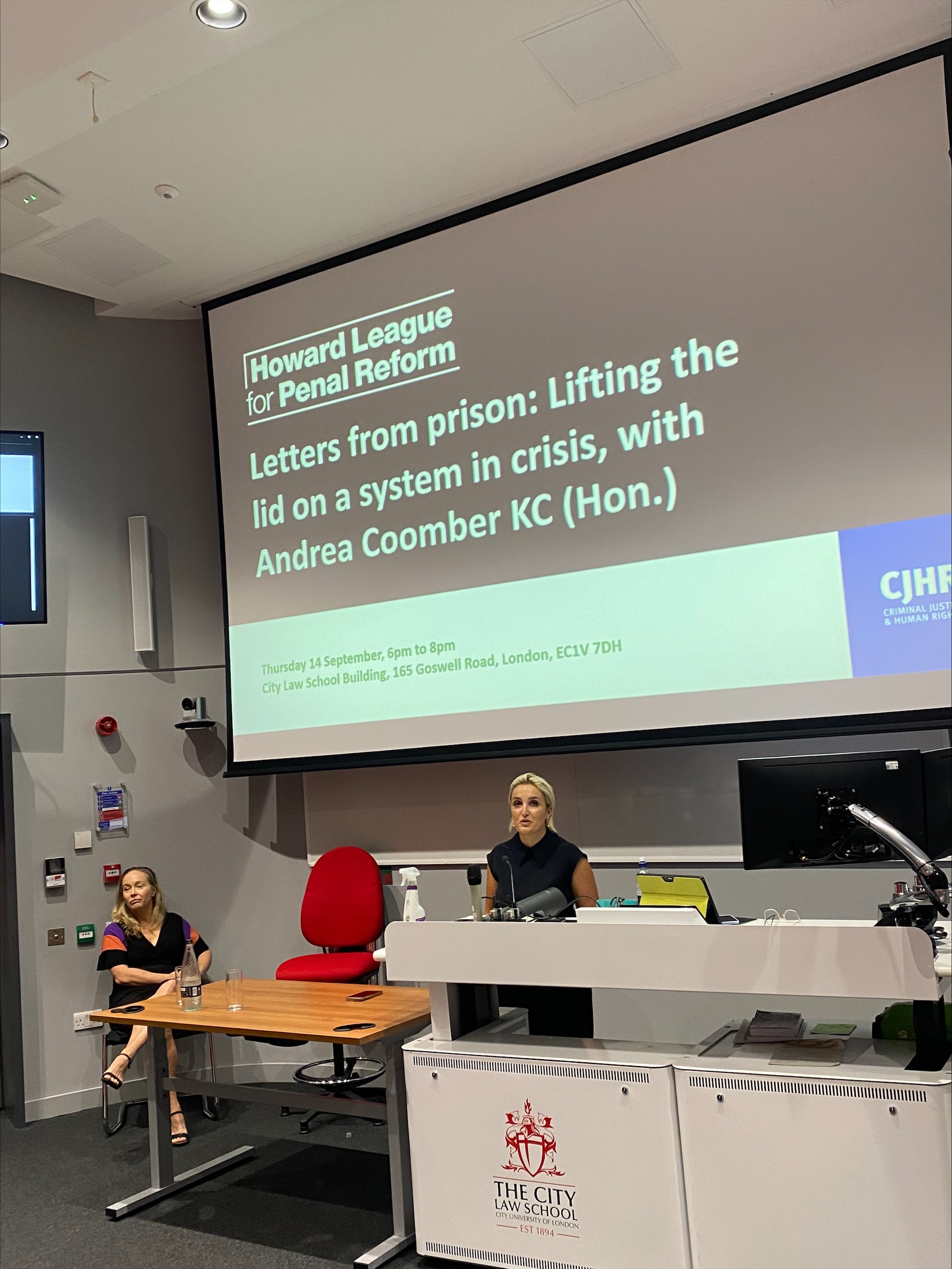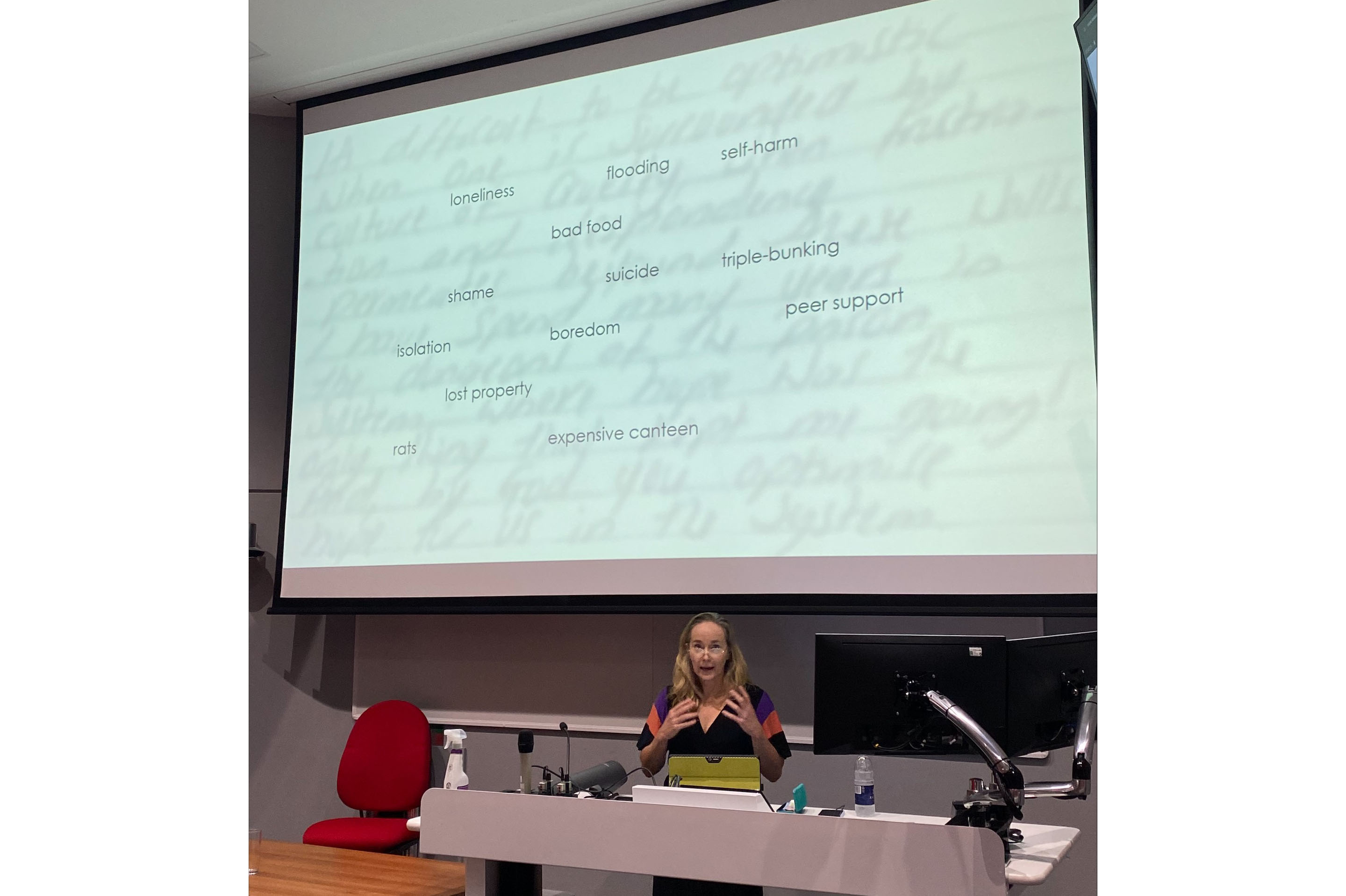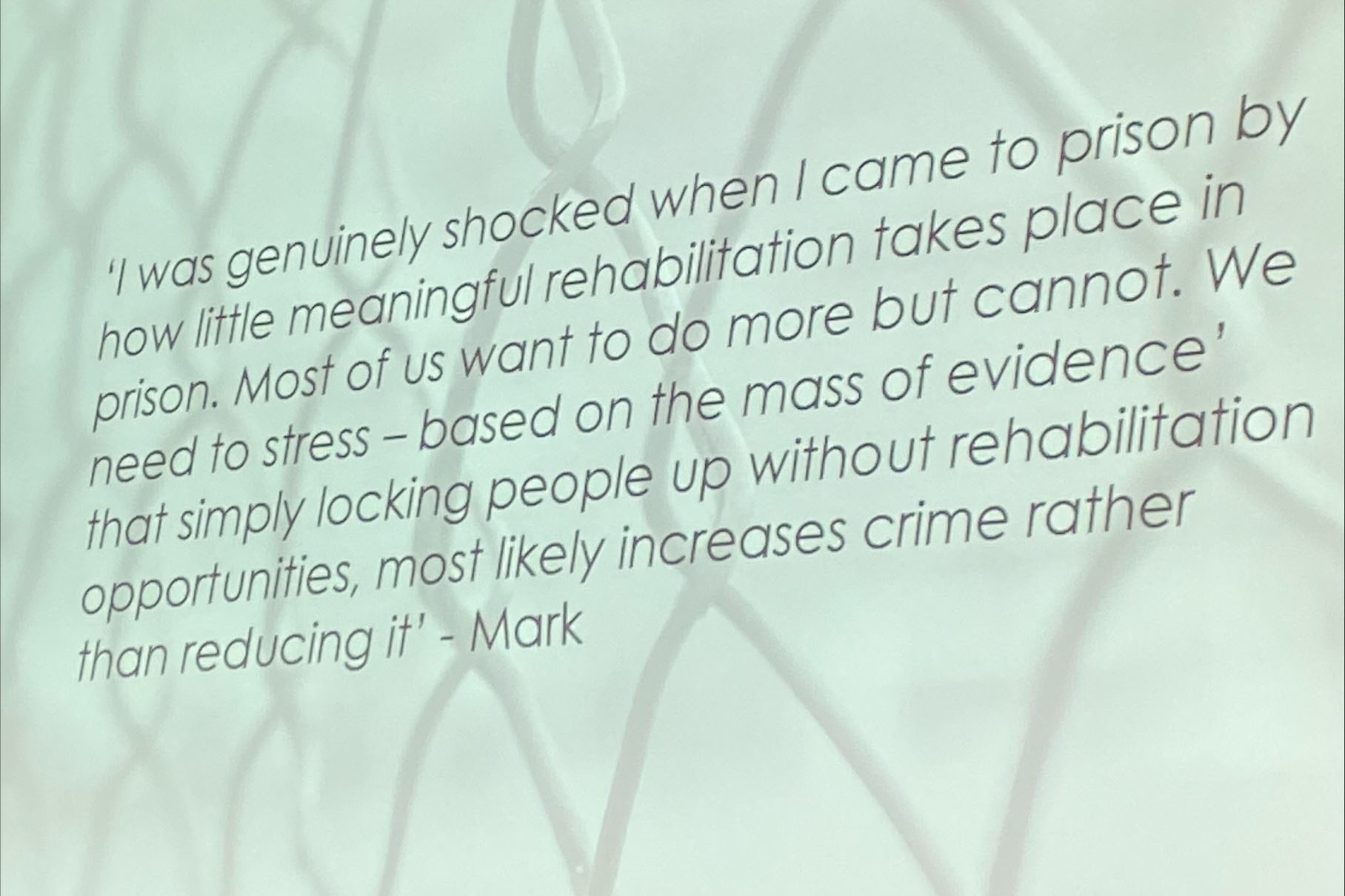Howard League Executive Director, Andrea Coomber, opens a new collaboration between City’s Criminal Justice and Human Rights Centre and the League.
By City Press Office (City Press Office), Published
Thursday 8th September 2023 marked the launch of an exciting new collaborative series by the Criminal Justice and Human Rights Centre at City, University of London and The Howard League for Penal Reform on Selective Decarceration.
Opening the series was Howard League Executive Director, Andrea Coomber, who delivered a powerful and illuminating insight into the contemporary challenges facing the UK prison system. Over the past year, Andrea has written a column on penal reform in a prison newspaper, exploring different themes, from mental health to the politics of prisons. The column has invited readers to write to share their experiences of prison, resulting in many letters from people sharing their insights on incarceration and rehabilitation, often sharing stories of hope, sometimes of despair. This lecture reflected on these letters, and thoughts from the Howard League’s members in prison, capturing the current crisis in the prison system, and what needs to be done about it.

Throughout the lecture, Andrea noted the importance prisoners place on sending and receiving letters. Letters allow prisoners a sense of connection with the outside world, they offer hope in otherwise hopeless conditions. Andrea also expressed how these letters offered a snapshot into prison life, highlighting the impact of policy change in a system that is overpopulated and understaffed. She noted that the majority of people sending these letters were male, reflecting the wider make up of UK prisons, with over 80,000 men and 3,000 women.
Deep material inequalities
Andrea indicated that the majority of the prisoners writing to her were new to prison, with many awaiting trial and remand. These prisoners explained how much they missed their families, and how they were struggling to deal with the anxiety and uncertainty of awaiting remand. Many described their shame, and of letting down themselves and their families. Others expressed their innocence.
An overwhelming majority of the letters reflected the deep material inequalities pervading the current system. Countless prisoners were struggling with basic literature, describing experiences of poor schooling, and of early childhood trauma. Andrea articulated:
“Most people in prison are normal people who’ve made bad decisions in bad conditions, but never known good conditions”

Andrea also outlined the gendered inequalities reflected in the letters. Some of the few women who did send letters often indicated that they’d been caught up in the criminal activities of their male partners. Some expressed that the Joint Enterprise doctrine had meant they’d been convicted because of their involvement with their partners, though they strongly proclaimed their own innocence. Andrea outlined that Joint Enterprise, and the injustices it invokes, is one of the Howard League’s thematic priorities for the coming years. Other female prisoners shared their anxieties about their pregnant peers, and how the understaffing of prison officers may impact the care pregnant prisoners receive.
Andrea also outlined the plethora of positive initiatives being set up by prisoners who sent letters. She described how some have set up initiatives to help one another, for instance, through art therapy workshops for those with mental health and learning differences. The letters revealed how these workshops offered a safe environment for people to work together and learn new skills. One prisoner also described initiating a six-year self-improvement course for people on long sentences.

Despite these hopeful interventions, Andrea’s talk and the prisoners' letters strongly indicate a failure of the current system. They reveal the ways in which UK prisons are overcrowded, suffering food and clothing shortages, and overpopulated by the country’s most vulnerable and disadvantaged groups. The letters also highlight that not only were prisoners fearful of understaffing, they worried that the heavy workload and subsequent low morale of prison officers were impacting their ability to adequately provide support. In summing up, Andrea pointed to the wider systemic issues which need to be addressed, arguing for a more humane and effective response to crime that provides justice to all and helps to reduce reoffending:
“The answers to crime don’t lie in the criminal justice system. They lie in housing, they lie in education, they lie in training and the provision of skills and opportunities. We need politicians to wake up to this issue and properly fund these areas”.
Read more about the work of the Howard League, and their strategic aims for 2023-2028 here.
